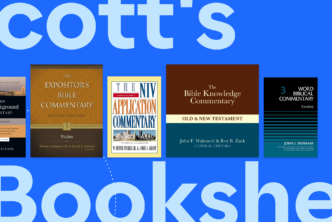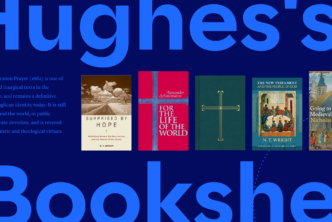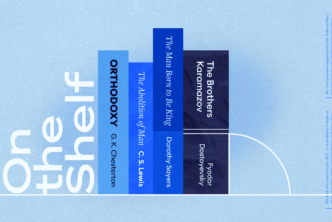“What is Naomi worth? Count her sons. According to that cultural scorecard, Naomi is a zero. So is her barren daughter-in-law Ruth. But is that how God sees them?”
In celebration of International Women’s Day, we bring you this excerpt from writer Carolyn Custis James. In 2013, Christianity Today named James one of 50 evangelical women to watch.
The book of Ruth turns a spotlight on the plight of women in the world for the whole Church to learn. This issue started at the fall and has escalated down through the ages to the present. In their 2009 New York Times bestseller, Half the Sky: Turning Oppression into Opportunity for Women Worldwide, authors Nicholas Kristof and Sheryl WuDunn expose systemic human rights violations against women and girls globally. Their research includes such human rights violations against women and girls as sex trafficking, honor killings, female genital mutilation, banning education for girls, child marriages, female gendercide, and rape as a weapon of war. In blunt terms and without overstating their case, Kristof and WuDunn describe the significance of this issue today as “the paramount moral challenge of the twenty-first century.”
The book of Ruth provides us with an opportunity to engage this crisis if we have eyes to see it. But seeing it means looking at their story through a different lens. We must delve deeper into the patriarchal world for women.
The book of Ruth also raises the subject of the value of a woman—a question that patriarchy answers without blinking. What is Naomi worth? Count her sons. According to that cultural scorecard, Naomi is a zero. So is her barren daughter-in-law Ruth. But is that how God sees them? Is a woman’s value truly derived from others? Or is it grounded in something that can never change? Death and childlessness severed these widows from anything that gave them meaning or value. When the last man in the family died, they both plummeted to the bottom of the social ladder—whether they lived in Moab or Israel.
No one would feel that more profoundly than the women themselves.
In today’s world, “It’s a girl!” are three of the most dangerous words uttered in cultures where patriarchal values are in full force. To be sure, there are striking examples of parents in those cultures whose hearts are just as captivated by their daughters as by their sons. But they are the exception, not the norm, in cultures that place a premium on sons over daughters. A son will build his father’s name and estate. But a daughter will marry and build another man’s family.
A woman who worked as an obstetrical nurse in India observed those values in action. She described the dramatic difference between what happened when a woman gave birth to a son versus a daughter. When a son was born, the news was greeted with noisy, jubilant celebration.
In contrast, the birth of a daughter was met with silence. She expressed distress over how difficult it often was to persuade a mother to hold her newborn daughter. Often the bride who fails to produce a son will experience abuse at the hands of her husband and in-laws.
Naomi’s catastrophic losses complete the collapse of her world. We find her sitting in the smoldering ruins of the life she once knew with no hope of recovery. She has no choice but to buy into the culture’s view of her. Anyone in Naomi’s world—including Naomi herself—would tell us with absolute certainty, “The story is over.” Who cares about two women who are zeros? Once the men are wiped from the story, there is no story.
This is where the Bible begs to differ with the world’s way of devaluing women. For it is at this point that, much to our surprise, the biblical camera zooms in on two childless women—two zeros—and the real story begins.
***
Carolyn Custis James, Finding God in the Margins: The Book of Ruth, ed. Craig G. Bartholomew et al., Transformative Word (Bellingham, WA; Burlington, ON: Lexham Press; St. George’s Centre, 2018), 24.





